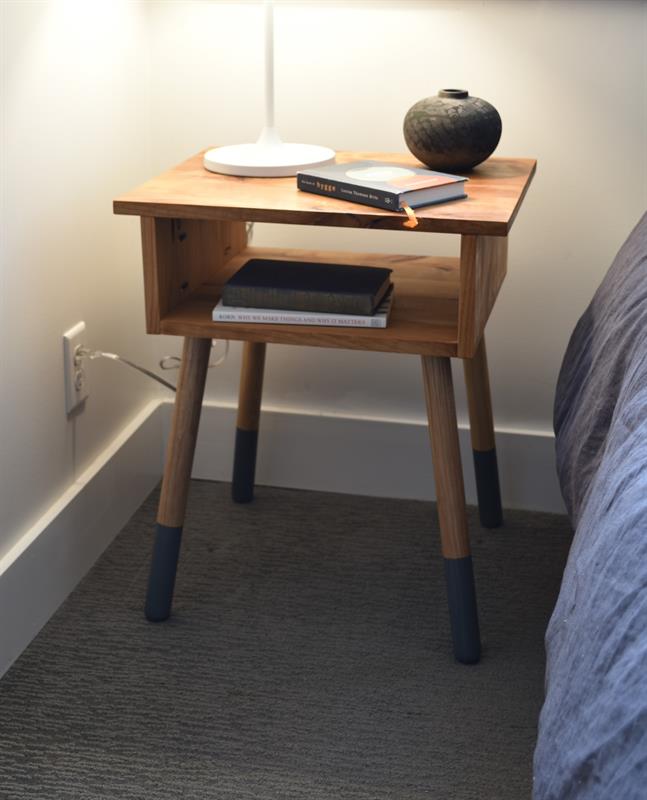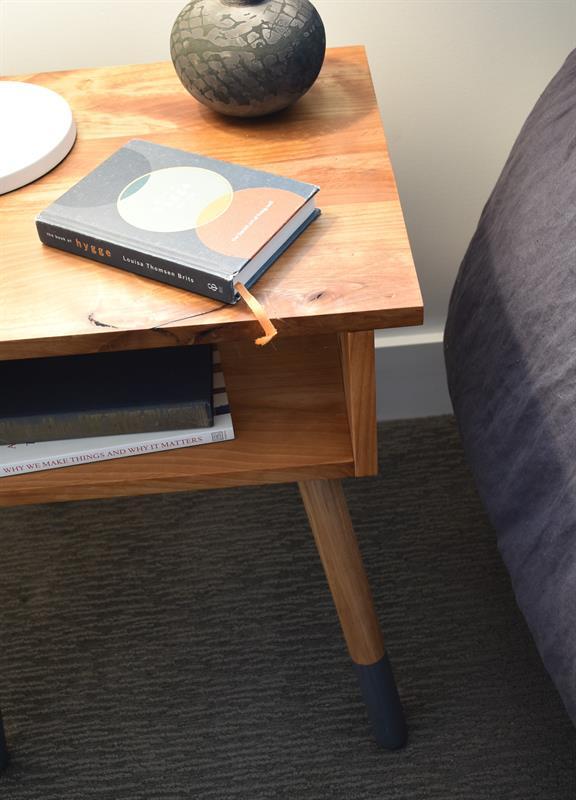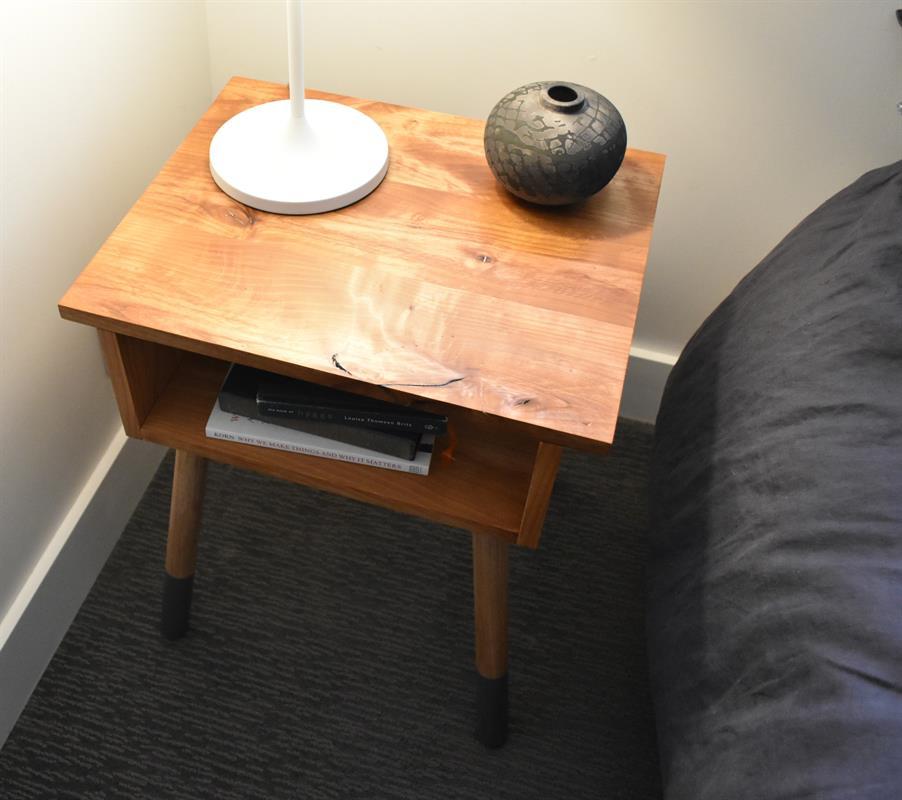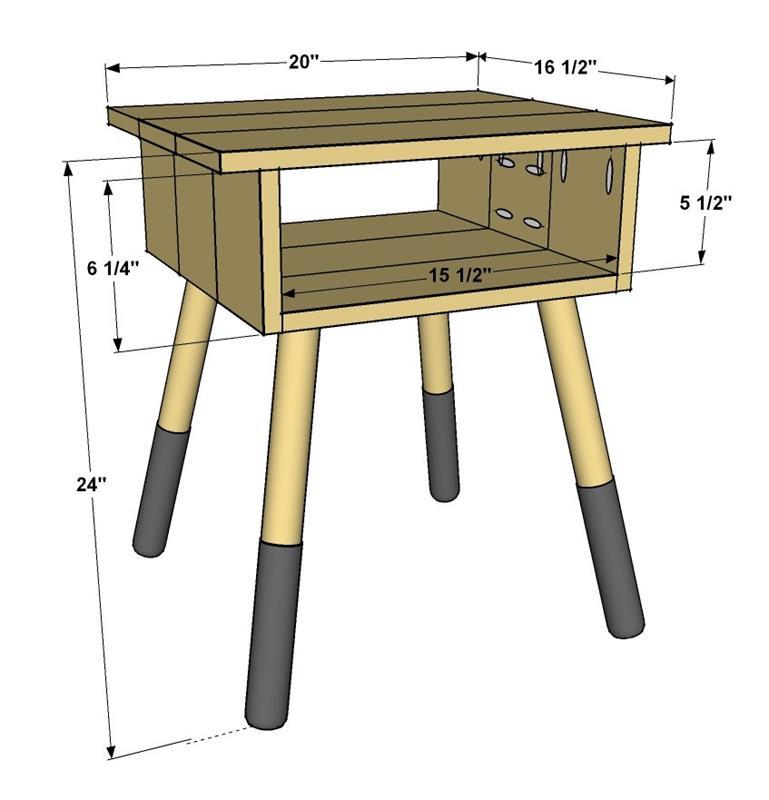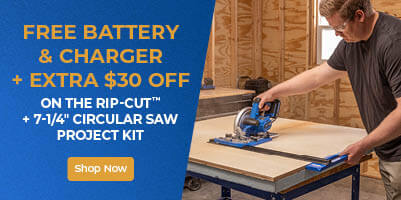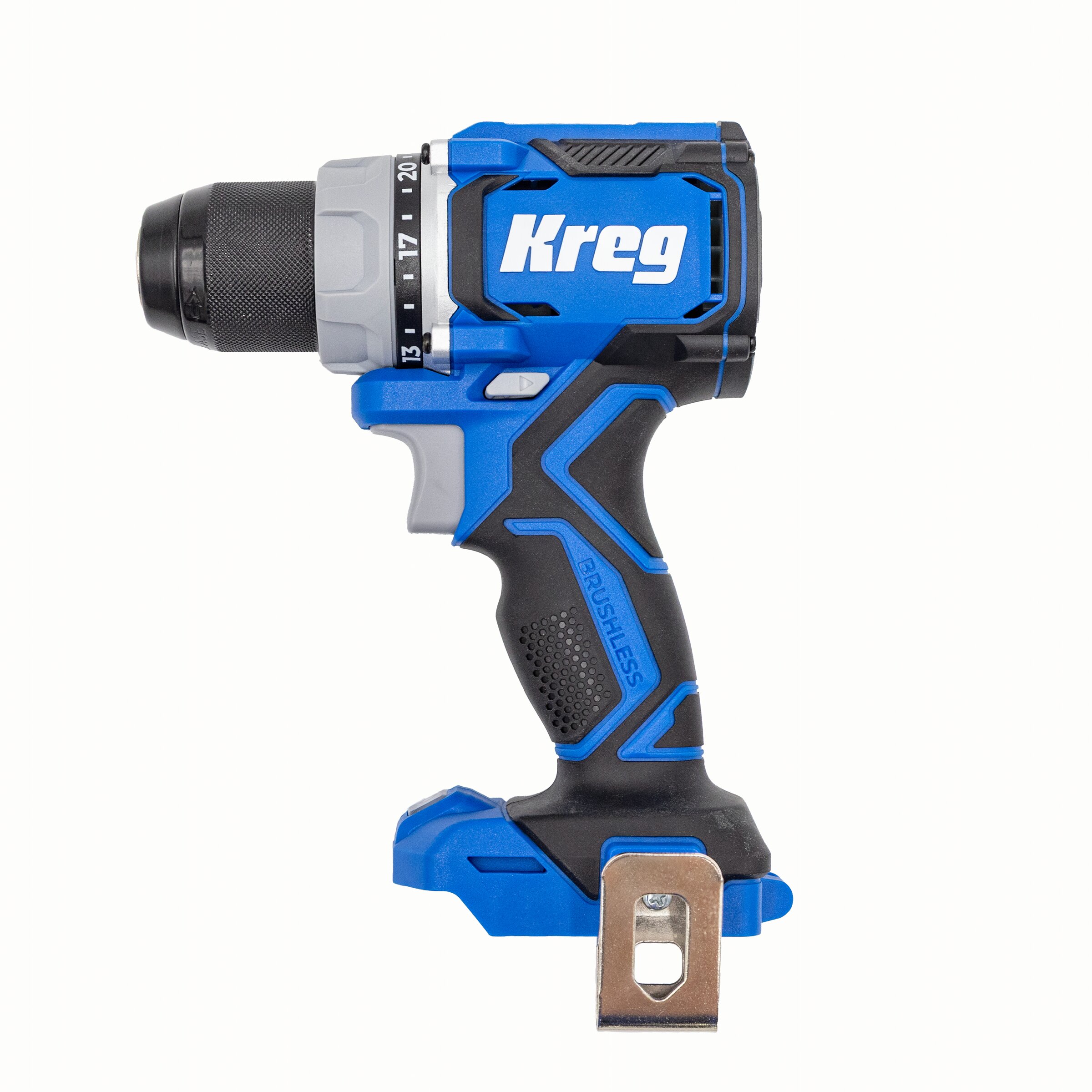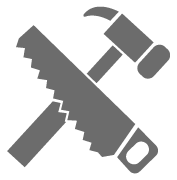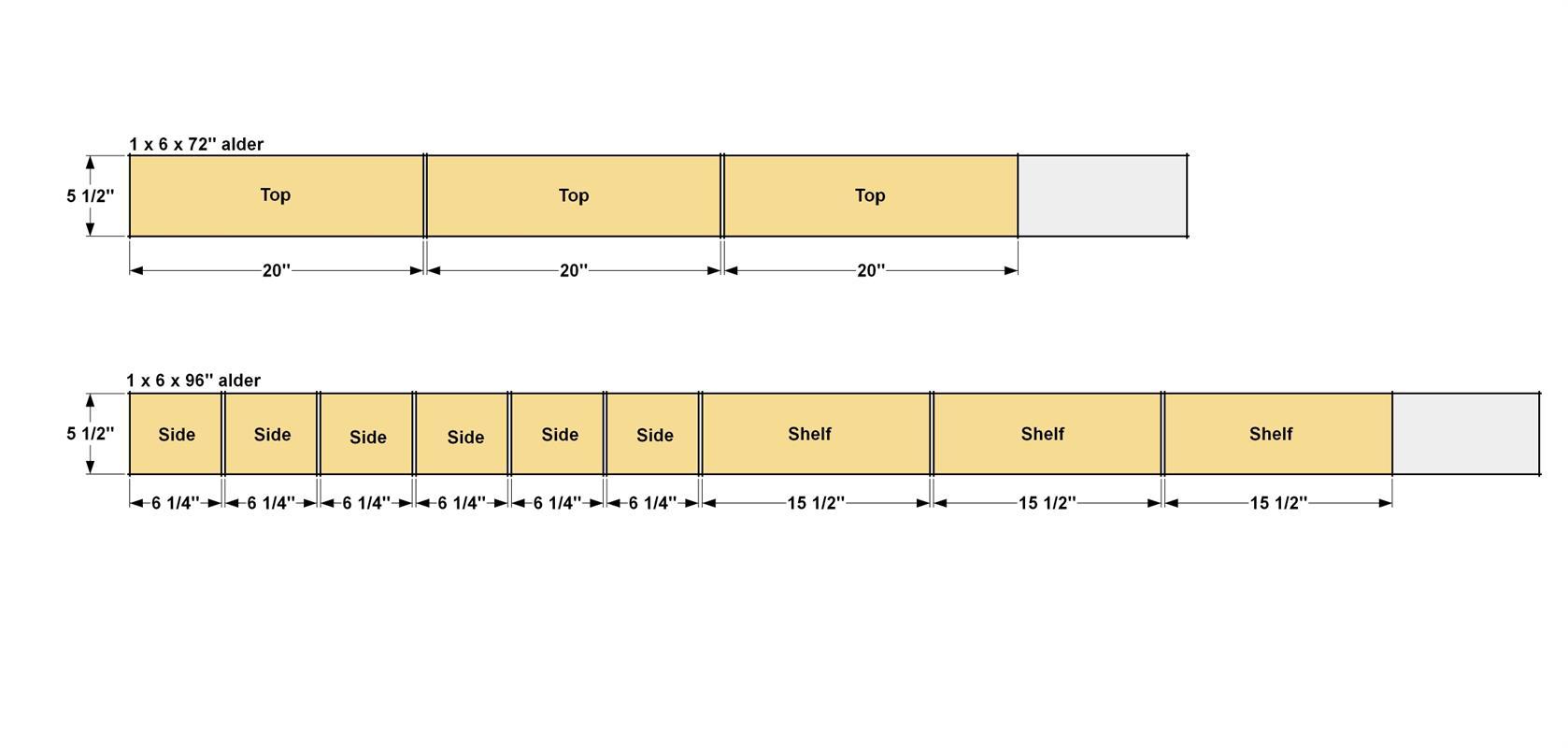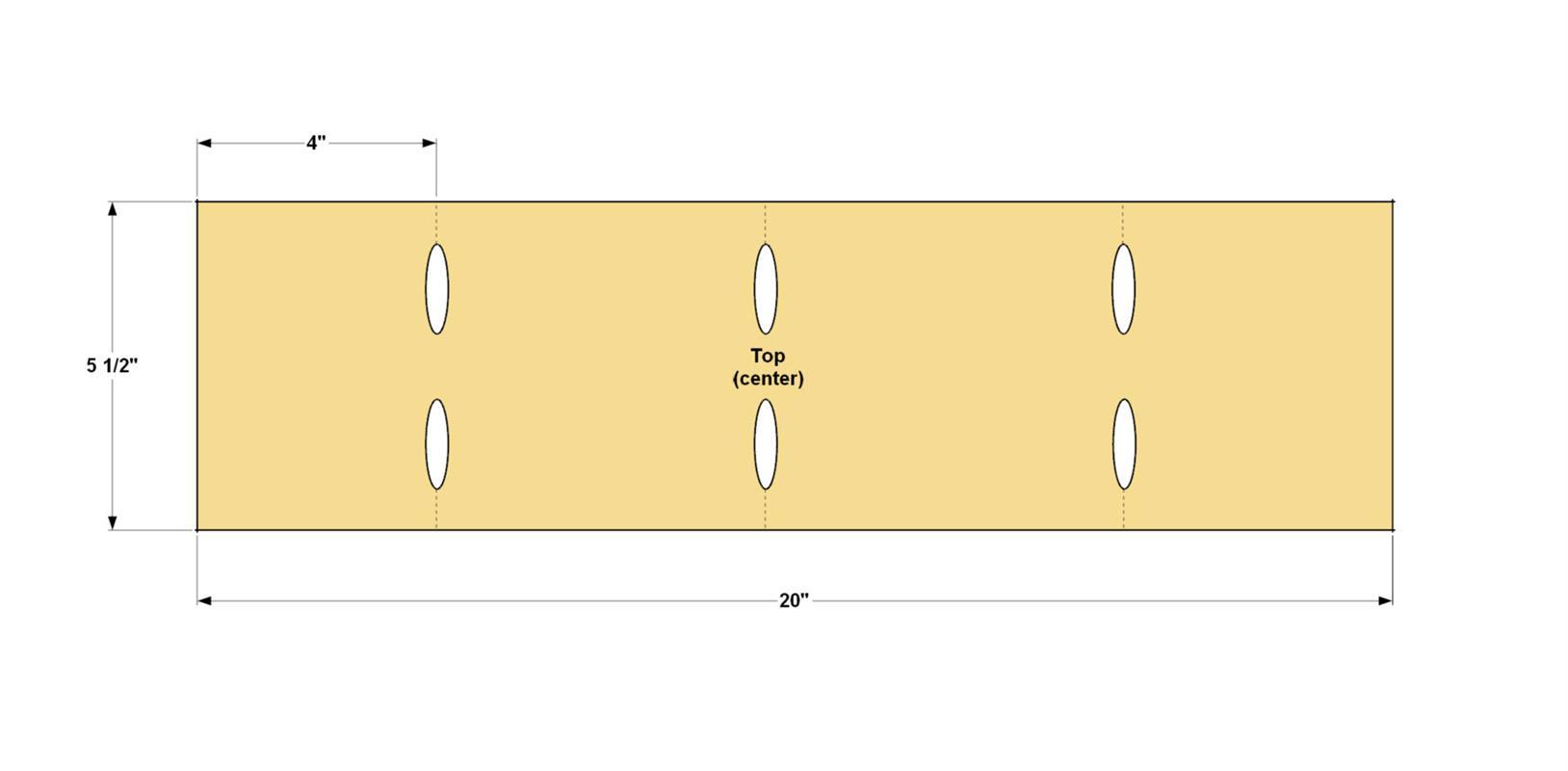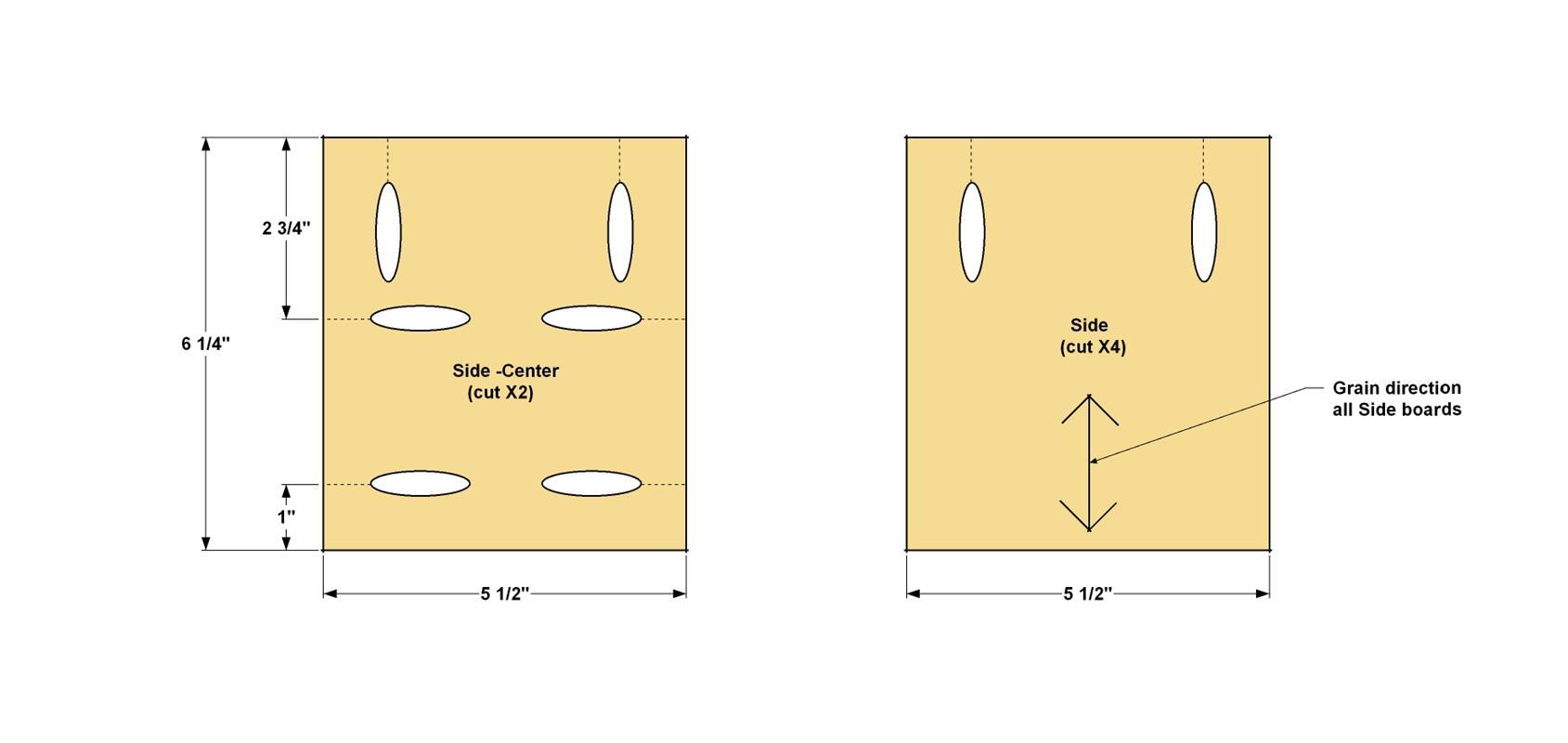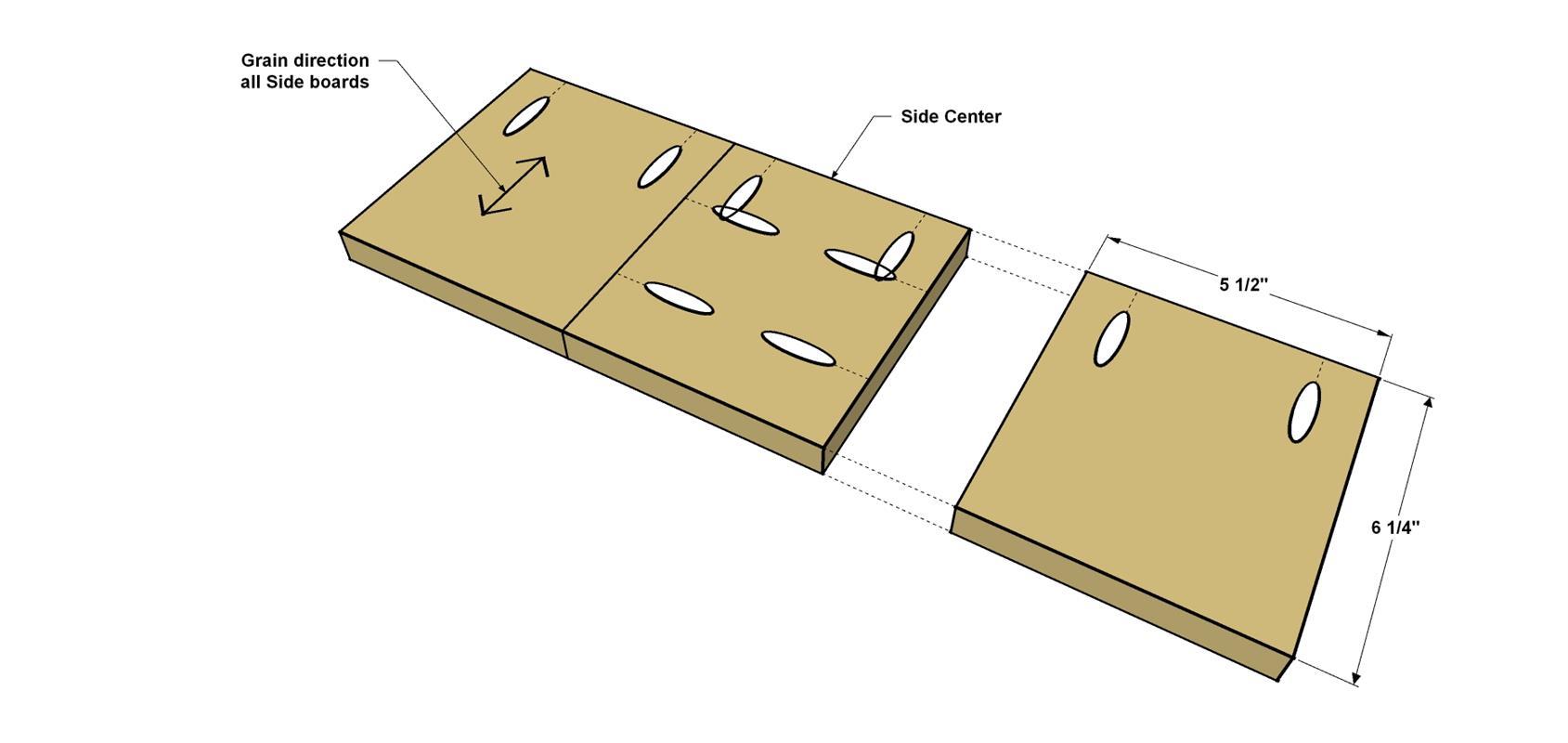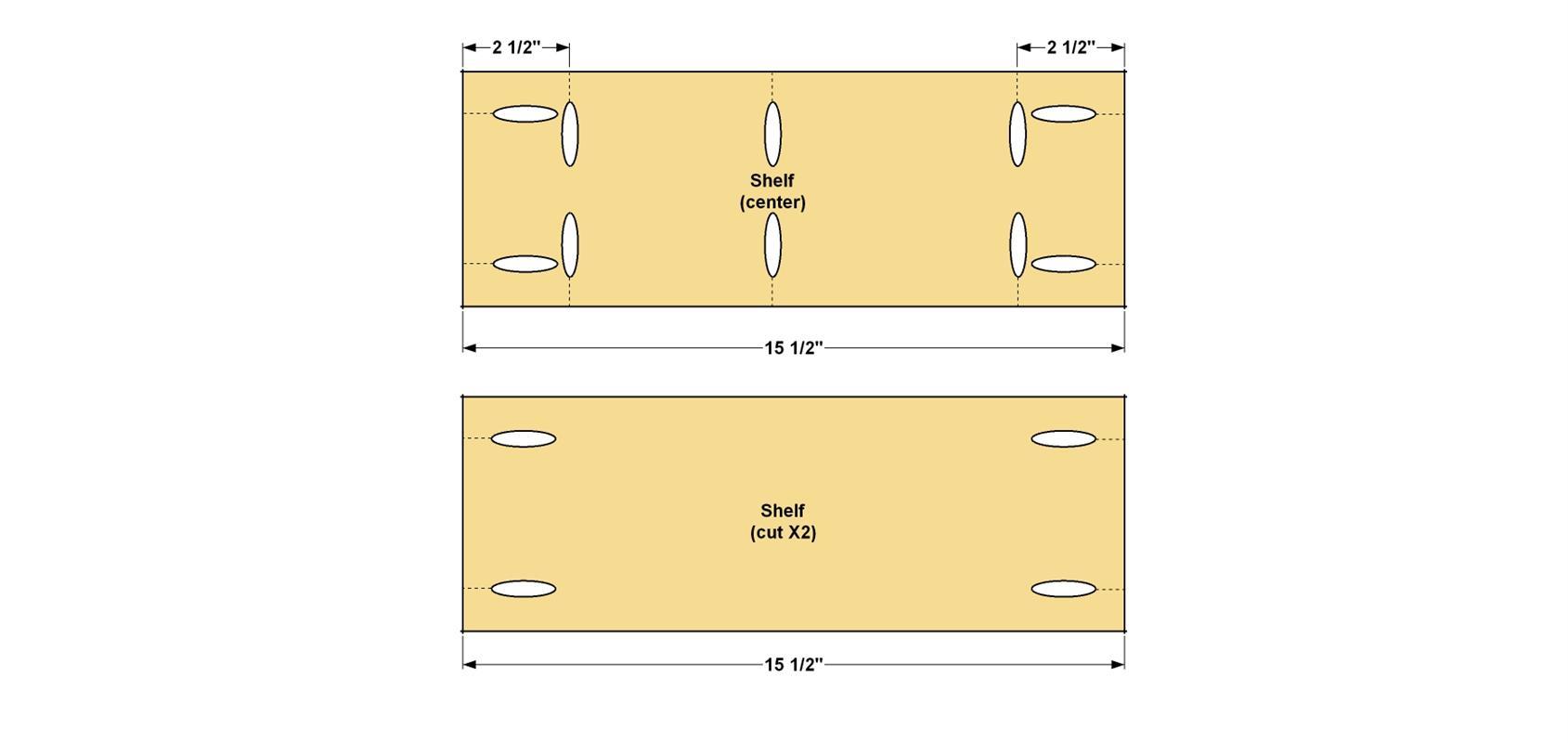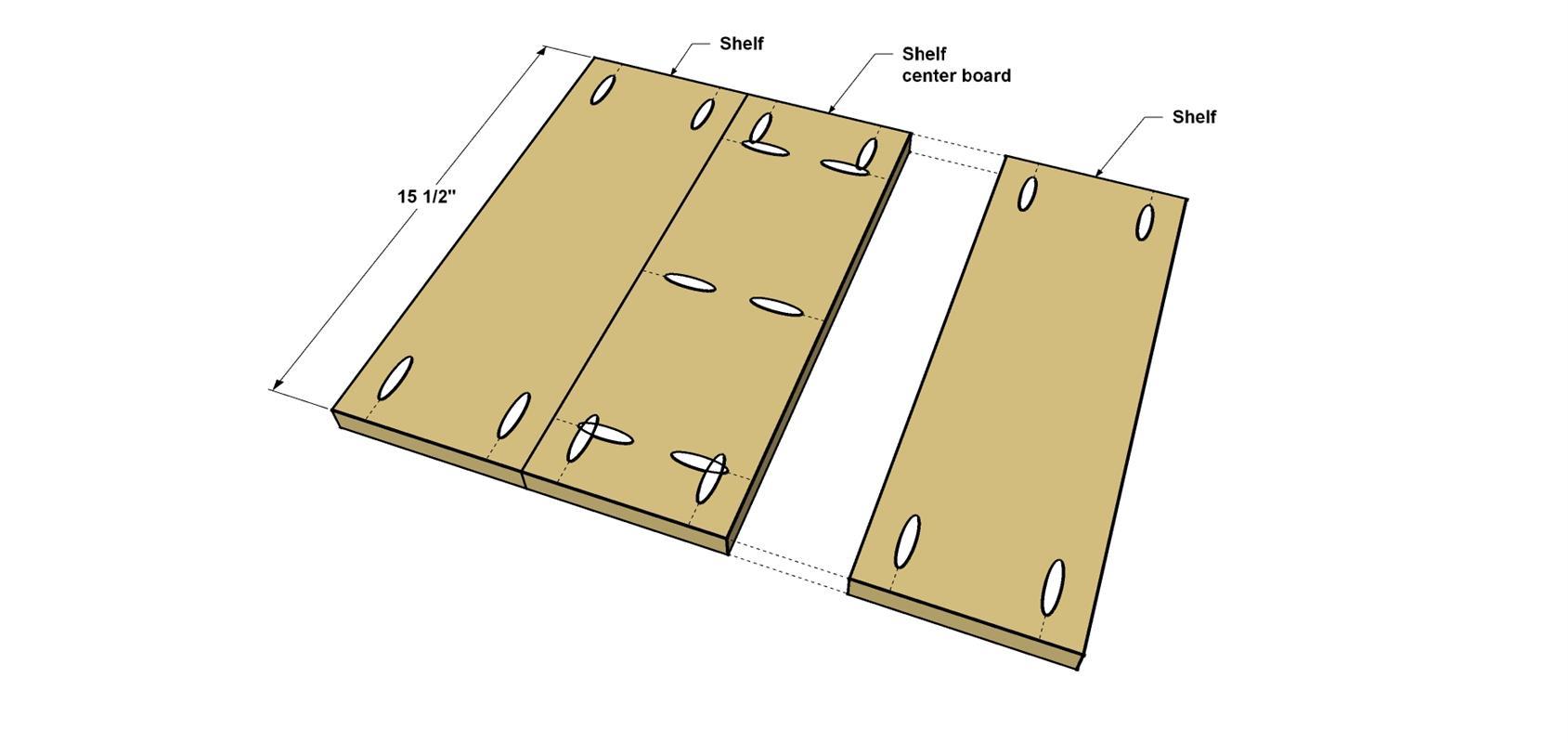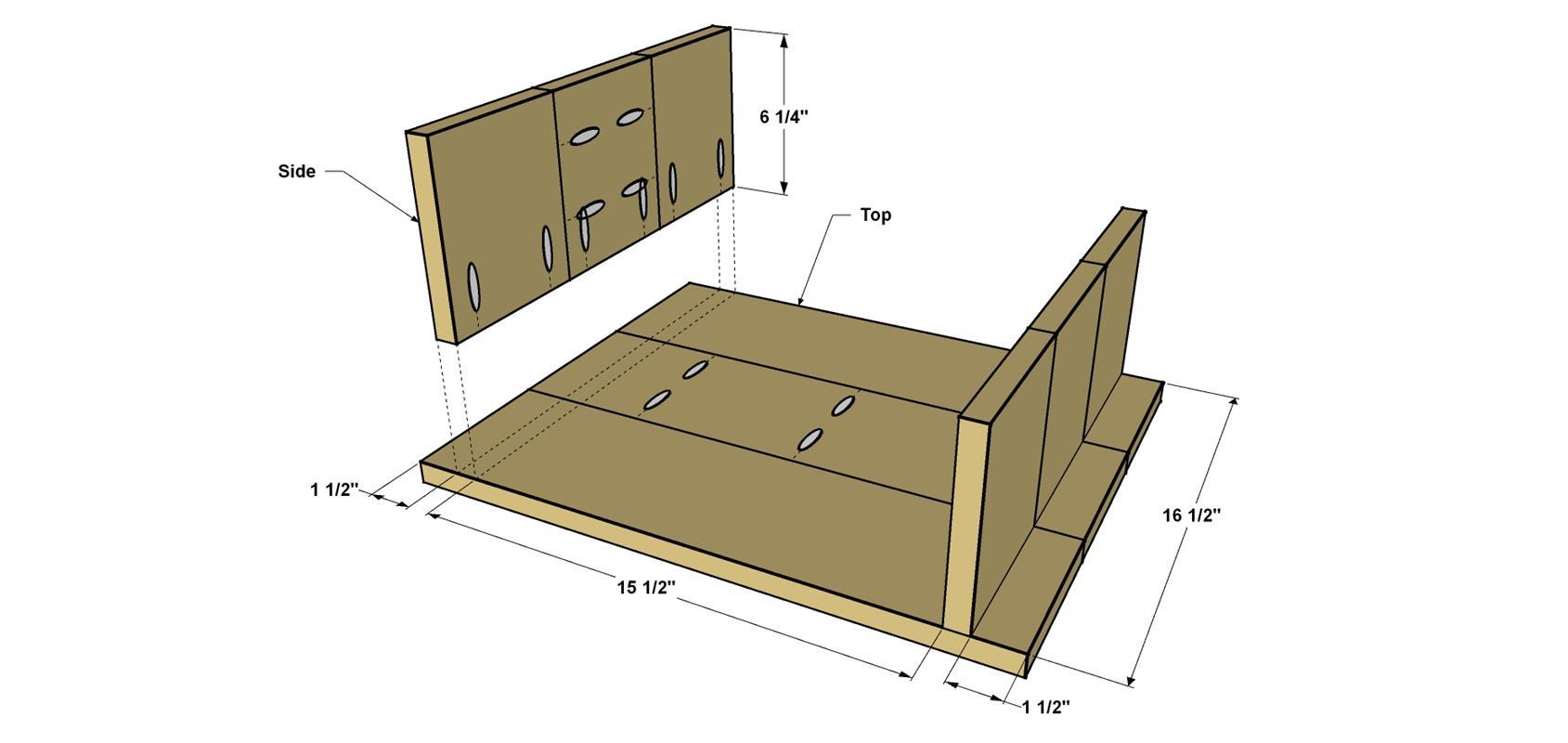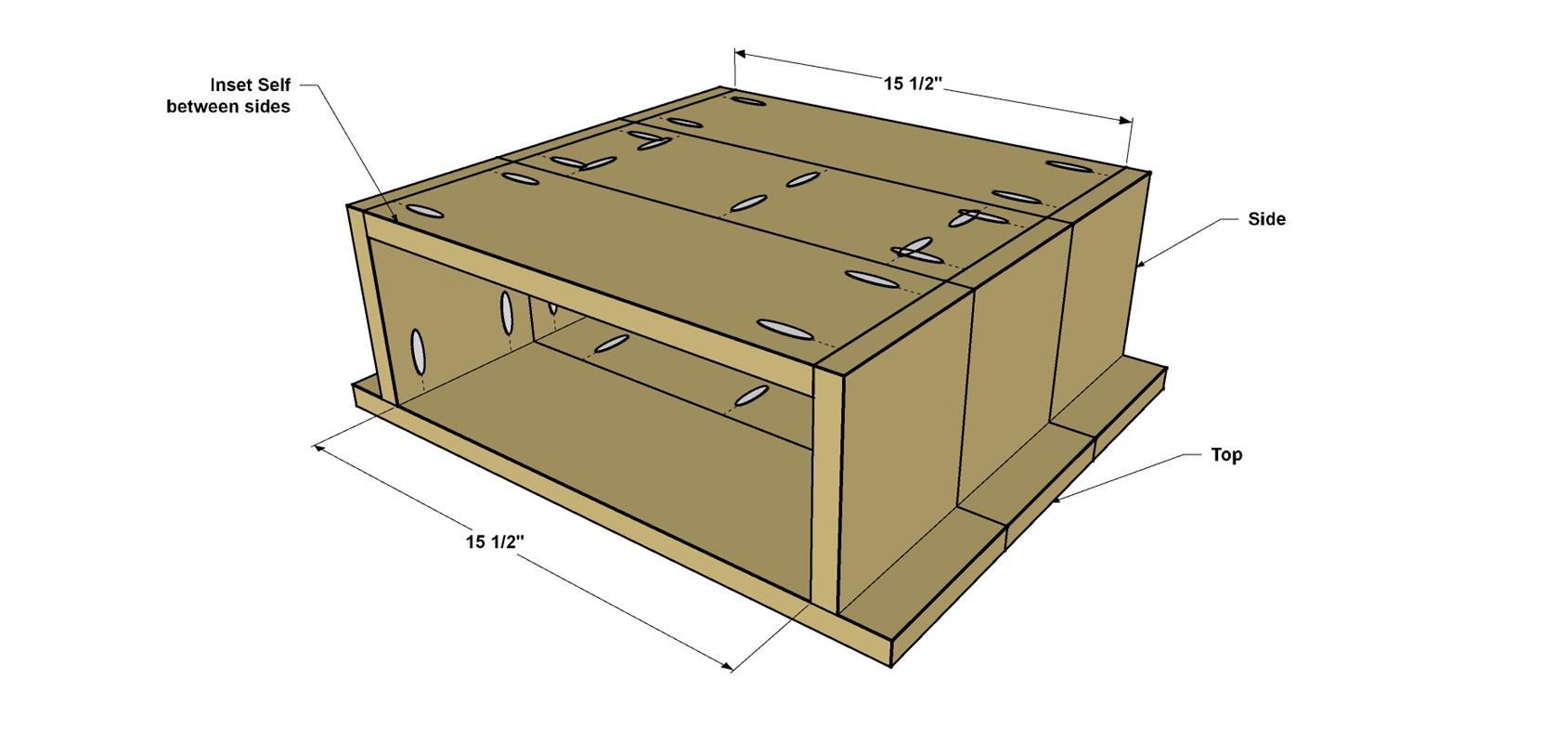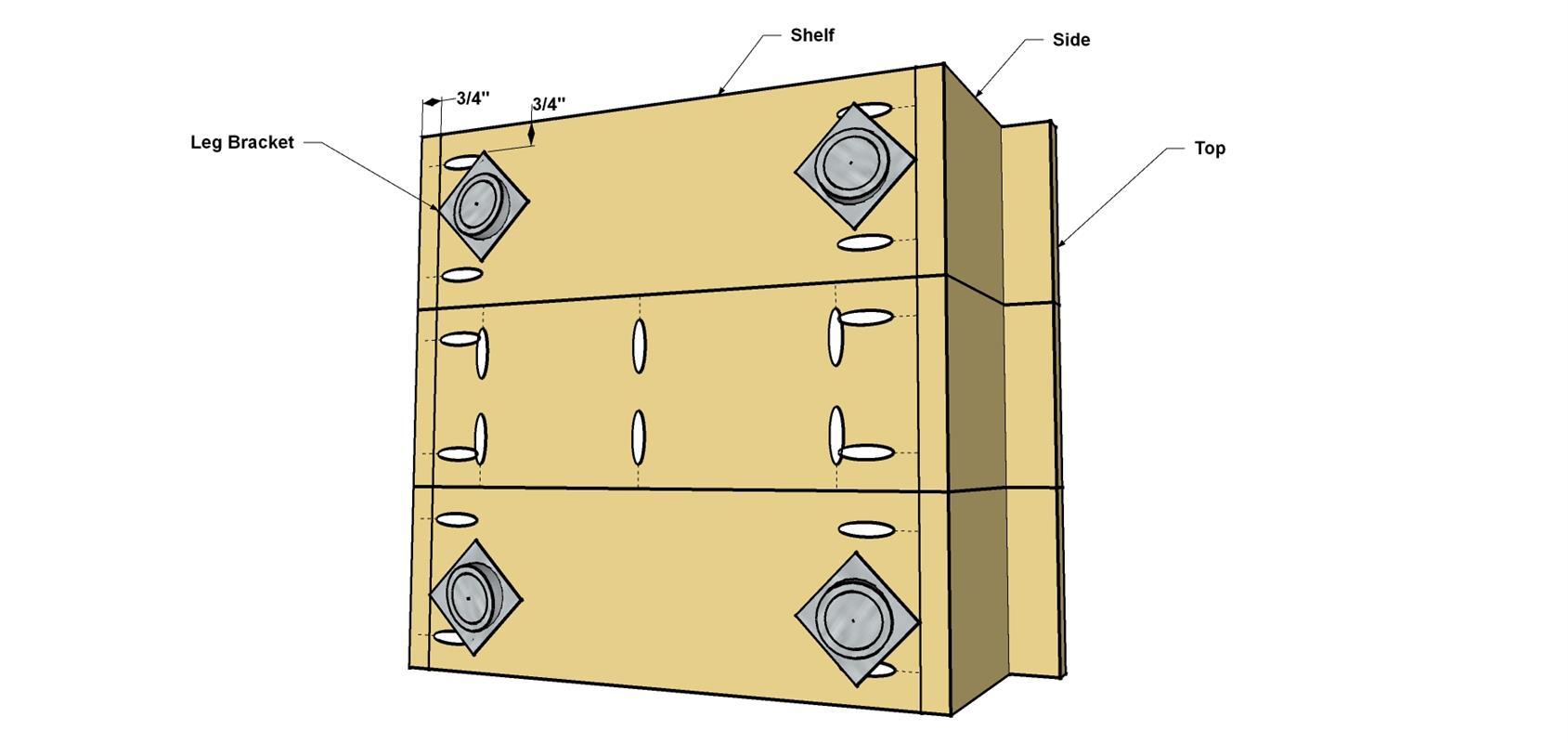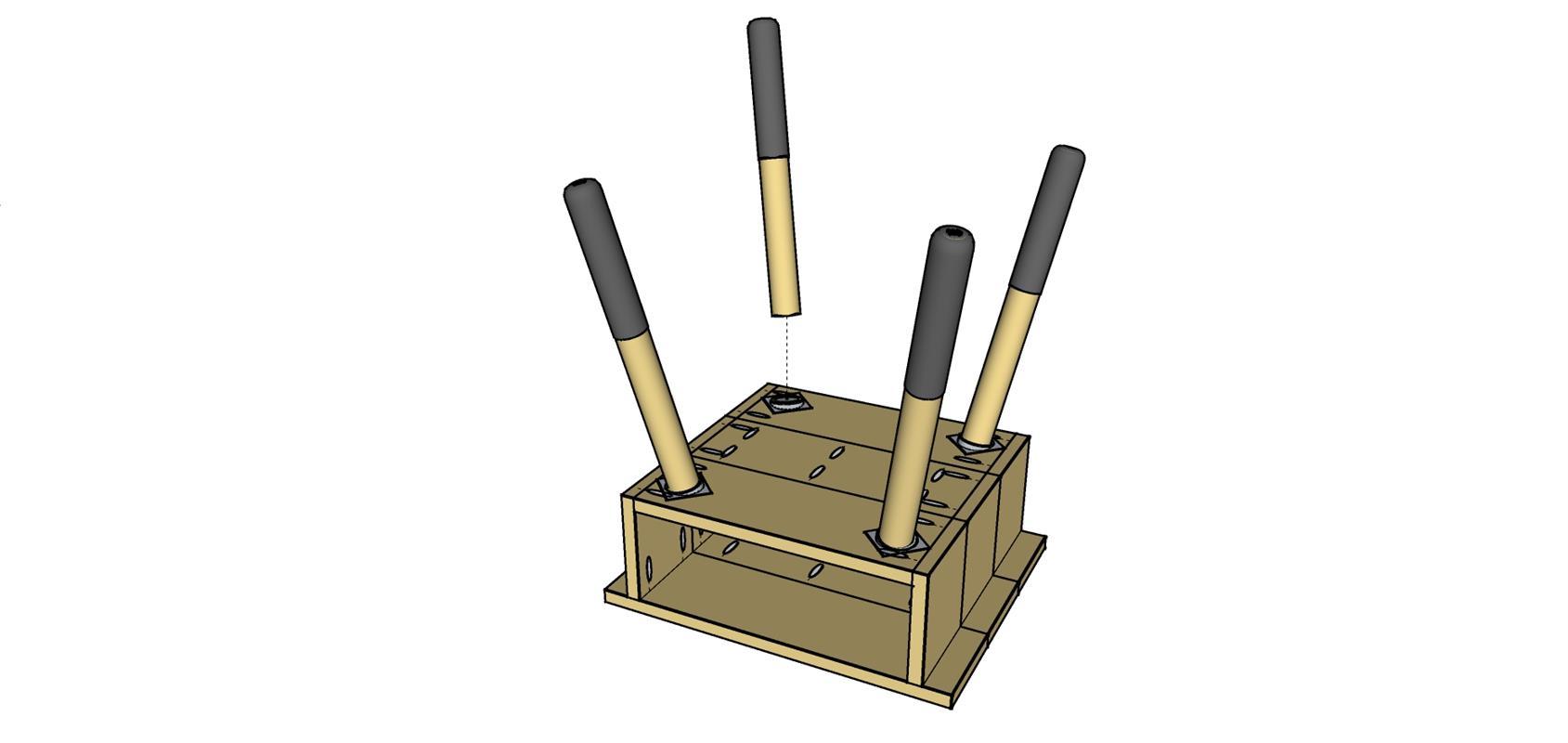Rustic Modern Side Table
By Kreg ToolStorage is important, that’s why these easy to build side tables are so great. They add just the right amount of storage for any space, and all you need are a couple boards and some stock legs from the home center. They're simple enough you can easily build a couple of them in just a weekend.
Directions
-
Cut the Top Boards
Start by cutting all of the Top boards to finished size from a 1 x 6 alder board, as shown in the cutting diagram. Set your Kreg Pocket-Hole Jig for 3/4"-thick material, and then drill pocket holes in one of the Top boards at the locations shown.
-
Assemble the Top
Apply glue to the mating edges of the Top boards and align them to form the top. Clamp the boards together and then secure and them with 1 1/4" fine-thread Kreg screws.
Sand Before Assembly
After the table is assembled, some of the spaces may be too tight for a sander to reach. A good tip is to sand the panels before assembling them into the finished table. Sand both sides of the panel flat with 120 grit sand paper, and then finish with 150 or 180 grit for the final surface.
-
Cut the Side Boards
Cut six Side boards to finished size from a 1 x 6, as shown in the cutting diagram. Drill pocket holes in each board, at the locations shown.
-
Assemble the Sides
Apply glue to the mating edges of the three Side boards and align them to form a Side panel, as shown. Clamp the boards together and then secure and them with 1 1/4" fine-thread Kreg screws. Repeat this process for the other Side.
Sand both sides of each panel with 120 grit sand paper first, and then finish with 150 or 180 grit for the final surface. -
Cut the Shelf Boards
Cut three Shelf boards to finished size from a 1 x 6 alder, as shown in the cutting diagram. Drill pocket holes in all the boards at the locations shown.
-
Assemble the Shelf
Apply glue to the mating edges of three Shelf boards and align them to form a Shelf panel, as shown. Clamp the boards together and then secure and them with 1 1/4" fine-thread Kreg screws.
Sand both sides of the panel with 120 grit sand paper first, and then finish with 150 or 180 grit for the final surface. -
Add the Sides to the Top
Apply glue to the mating edges of three Side boards and align them to form a Side panel, as shown. Clamp the boards together and then secure and them with 1 1/4" fine-thread Kreg screws.
-
Add the Shelf
Position the Shelf between the Side so the edges and face are flush with the Sides. Clamp the Shelf in position, as shown, and secure it to the Sides using 1 1/4" fine-thread Kreg Screws.
-
Finish the Table
Sand all the parts smooth and wipe away dust with a rag. Apply the finish of your choice. We finished our Side Tables with a natural oil to highlight the alder wood we used. For a little extra protection, you can add a couple thin coats of paste wax after the oil has had time to dry. Follow the manufacturer’s recommendations for proper drying time and application process.
-
Add the Leg Brackets
Position the first leg bracket at a 45° angle to the corners of the table, where shown. Using the bracket screw holes and a self-centering drill bit, drill pilot holes for the first bracket. Secure the bracket to the Side Table with the screws provided. Repeat this process for the other three brackets.
-
Paint, Finish, and Attach the Legs
Finally, to achieve the dipped leg look, mask off the bottom 6" or so of each leg with a quality painters’ tape. Here’s a little tip to support the legs while you paint them: Using a scrap piece of wood about 3’ long, drill four 1/4" holes spread out along the board. Next, screw the legs into the board. Now you can paint the legs with ease. Once the paint dries, you can apply a clear protective finish to the legs. This will enhance the natural color of the wood as well as help protect them.
When the finish is dry, screw the legs into the brackets until they are snug. Flip the table over and they will be ready to support a good nights sleep..as well as a lamp.



